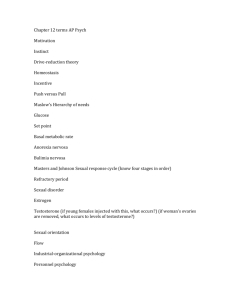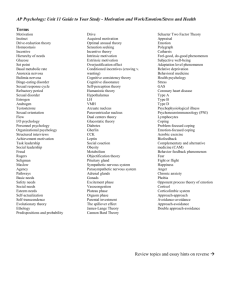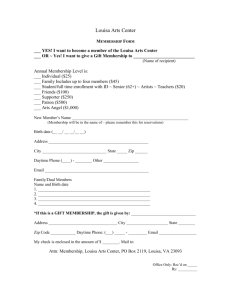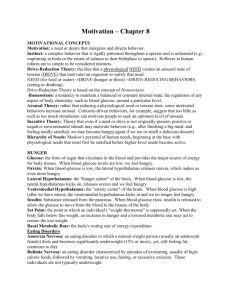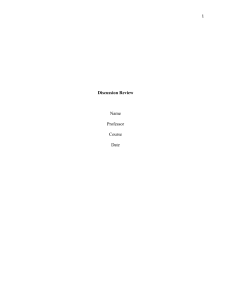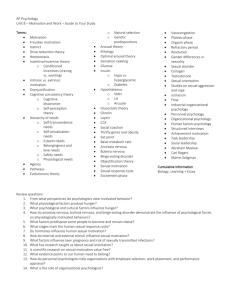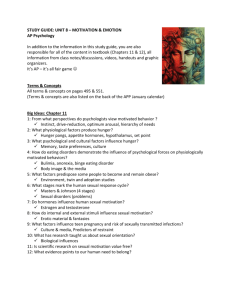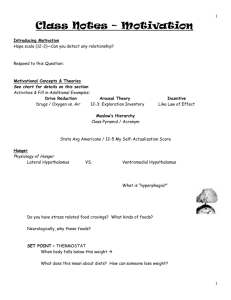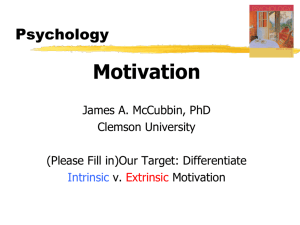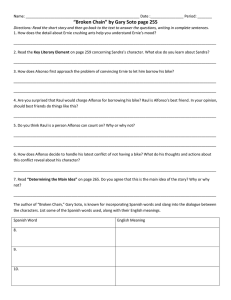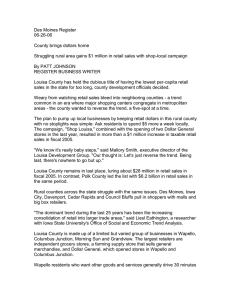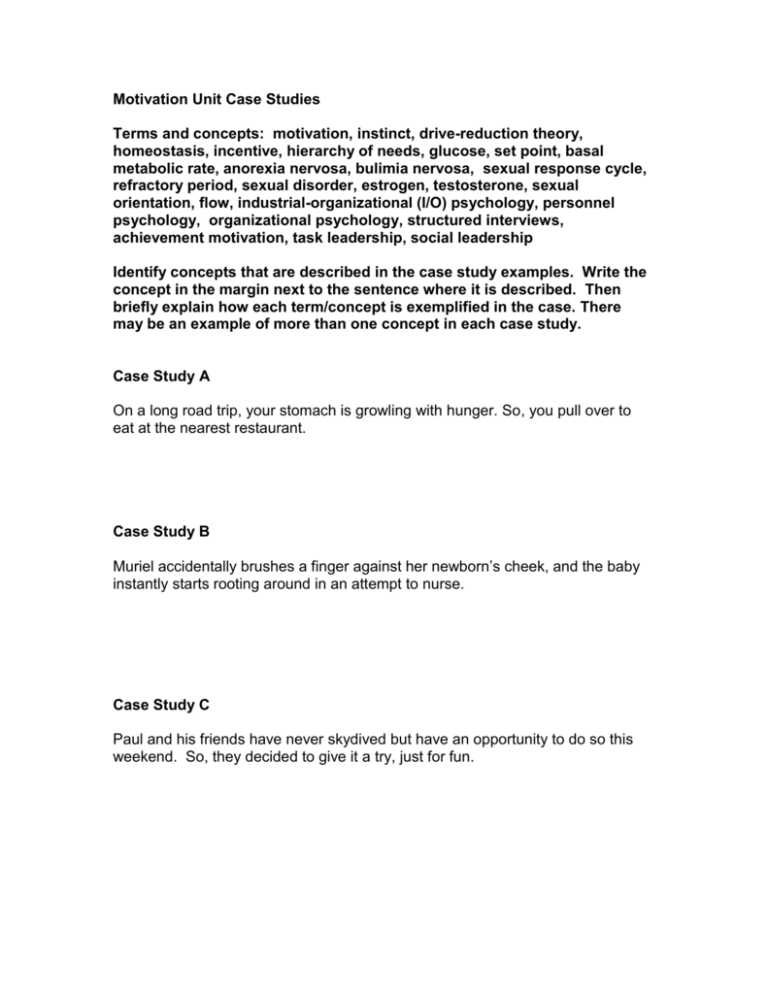
Motivation Unit Case Studies
Terms and concepts: motivation, instinct, drive-reduction theory,
homeostasis, incentive, hierarchy of needs, glucose, set point, basal
metabolic rate, anorexia nervosa, bulimia nervosa, sexual response cycle,
refractory period, sexual disorder, estrogen, testosterone, sexual
orientation, flow, industrial-organizational (I/O) psychology, personnel
psychology, organizational psychology, structured interviews,
achievement motivation, task leadership, social leadership
Identify concepts that are described in the case study examples. Write the
concept in the margin next to the sentence where it is described. Then
briefly explain how each term/concept is exemplified in the case. There
may be an example of more than one concept in each case study.
Case Study A
On a long road trip, your stomach is growling with hunger. So, you pull over to
eat at the nearest restaurant.
Case Study B
Muriel accidentally brushes a finger against her newborn’s cheek, and the baby
instantly starts rooting around in an attempt to nurse.
Case Study C
Paul and his friends have never skydived but have an opportunity to do so this
weekend. So, they decided to give it a try, just for fun.
Case Study D
Louisa is a teenager who has joined the “wrong” kind of crowd at school. One
night she follows the gang to an outdoor party deep in the woods. After walking
a long, long way, she finally asks whether they are nearly there and mysteriously
gets no response. Louise begins to wonder about her decision to hang out with
these kids. They are her only friends, but she is tired, cold, and hungry, and
she’s beginning to feel afraid of this group that doesn’t really seem concerned
about her wellbeing. When the group turns onto yet another dark, overgrown
path, Louisa decides to make a run for it and heads for home. Using Maslow’s
hierarchy of needs, explain Louisa’s behavior.
Case Study E
You are traveling and have not eaten anything in eight hours. As your longawaited meal is placed in front of you, your mouth waters. Even imagining this
may set your mouth to watering. What triggers this anticipatory drooling, and
why do you feel so hungry?
Case Study F
Imagine that you are the U.S. Surgeon General and you decide to issue a set of
recommendations to every American to help reduce the alarmingly high
incidence of obesity in the United States. What should your top five
recommendations be to help solve this problem?
Case Study H
How might drive-reduction theory, arousal theory, and the evolutionary
perspective explain our sexual motivation?
Case Study I
Another type of motivation is our need for affiliation—our need for others and for
the feeling that we belong. Have you ever thought about why we have those
needs? How might a researcher in motivation explain our need to belong?
Case Study J
Alfonso and his friends are going kayaking. Alfonso suggests that they do the
level one, easier rapids. Using McClelland’s motivation theory, explain Alfonso’s
level of motivation.

